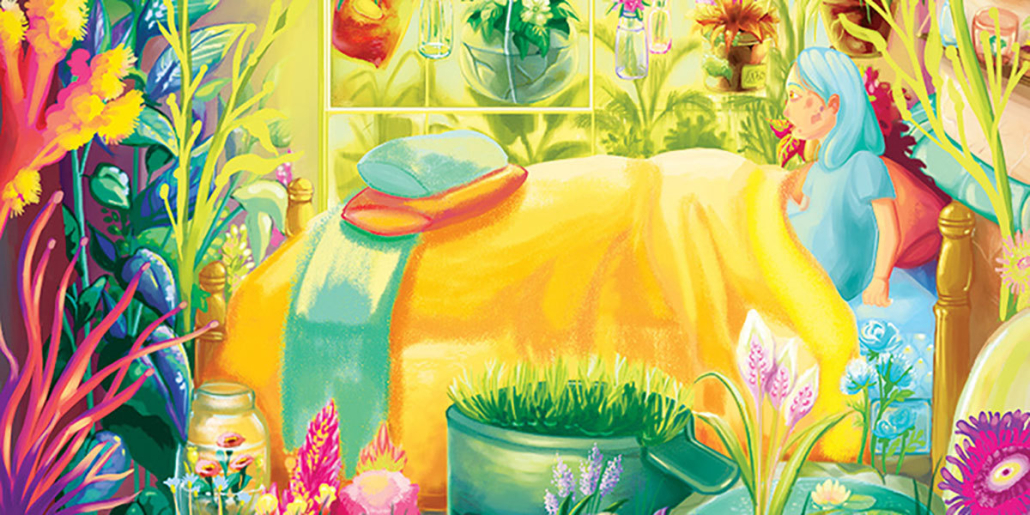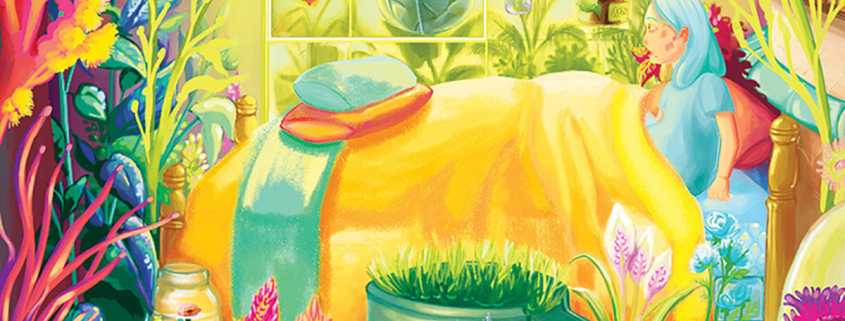Arts and Climate Collective welcomes new cohort

If you were lucky enough to have made it to the “Regenerate” event at the USC Fisher Art museum last October, you’ll be familiar with the Arts and Climate Collective. A collaboration among USC Arts in Action, the USC Office of Sustainability and USC Annenberg Innovation Lab, the group provides funding grants and a common forum to help student artists produce sustainability oriented projects.
After the success of its inaugural group of grantees last spring, the organization assembled its Fall 2021 cohort, which organizers say features an even greater variety of art forms.
“I feel like with this cohort, it’s so special because of the wide range of projects there are,” said Diana Salinas Vargas, ACC’s 2021-22 intern. “When we were reading applications, it was so difficult because everyone had such unique projects.”
Salinas Vargas, a junior majoring in public policy, helped plan “Regenerate” and is fascinated by the intersection of sustainability and art. She serves as a firsthand account of the first cohort’s success in achieving its goal of climate advocacy through art.
“I’m honestly very new to the sustainability world, the environmental justice world,” Salinas Vargas said. “But when I went [to ‘Regenerate’], I was like, ‘I feel a part of this. I feel included.’ There was no moment I felt like an outsider … I understood the urgency of solving these problems, and I think that’s where ACC entices [me] the most, making it accessible through the art.”
Other members of the collective were similarly pleased with the outcome of last semester’s projects. Hannah Findling, co-director of the ACC, expressed her satisfaction at the turnout for “Regenerate.”
“The only thing I was upset about was that we had to turn students away,” Findling said. “We had a big space, but because of COVID, the numbers were slashed way down … That really showed us how much desire there is in the student body to have those types of spaces and events.”
Looking forward to this next semester, the collective has approved grants of $1,350 for 18 projects, providing 20 students with funds to pursue their work. The approved works span across University departments and encourage collaboration among artists across mediums.
“I would say that our first cohort stuck a little bit closer to more traditional forms of art activism [like] films and podcasts,” Findling said. “With this new cohort, it’s a lot more diverse, there’s a huge range in types of projects. We’ve got everything from paintings and sculptures to people doing multimedia zines and interactive websites to people creating different types of platforms and poetry.”
The range of media also speaks to the universality of climate change and environmentalism, especially to artists of younger generations. It serves as an example, Findling said, of how varied the paths are to getting involved with environmental activism.
“I think it really illustrates how many different ways there are to be involved in and to work on this issue,” Findling said. “And [it brings] together people from so many different disciplines and art forms and backgrounds that all care about the same thing and have the same similar goals.”
Beyond connecting student artists with each other, the collective also works hard to platform voices from the community in their work and events. At “Regenerate,” renowned youth climate activist Nalleli Cobo spoke about her experience growing up in University Park, across the street from a toxic oil well. Her moving testimony reminded listeners of their place in the fight for environmental justice in South Central, and her calls to action combined with speeches from other community organizers called on attendees to participate in local campaigns.
Despite uncertainty around coronavirus precautions, the collective has a tentative date of April 20 for their Spring 2022 event. In speaking about their plans, organizers intend to highlight the presence of community voices in their next event.
“A lot of [environmental] issues are part of the surrounding USC community and sometimes USC has a lot to do with it, so we definitely want to bring [those] voices inside” Salinas Vargas said. “Obviously [community members] don’t owe [us] anything … but we would definitely love to further that [collaboration] especially in our next ‘Regenerate’ event.”
Findling concurs on that focus, emphasizing the importance of spaces dedicated to communication and expression. The directors of the ACC, she said, are committed to encouraging expression not just among its cohort but for all University students.
“USC is huge,” Findling said. “A lot of people care about this issue and find art as a way that they can express that and contribute to [combating] the issue. But it can be a little bit hard to do on your own, whether logistically, emotionally or all the different meanings of what it means to do it on your own versus do it in a group. And so, my recommendation would be [to] find your people, the people that inspire you, and give you that hope and that drive to create and to build.”

